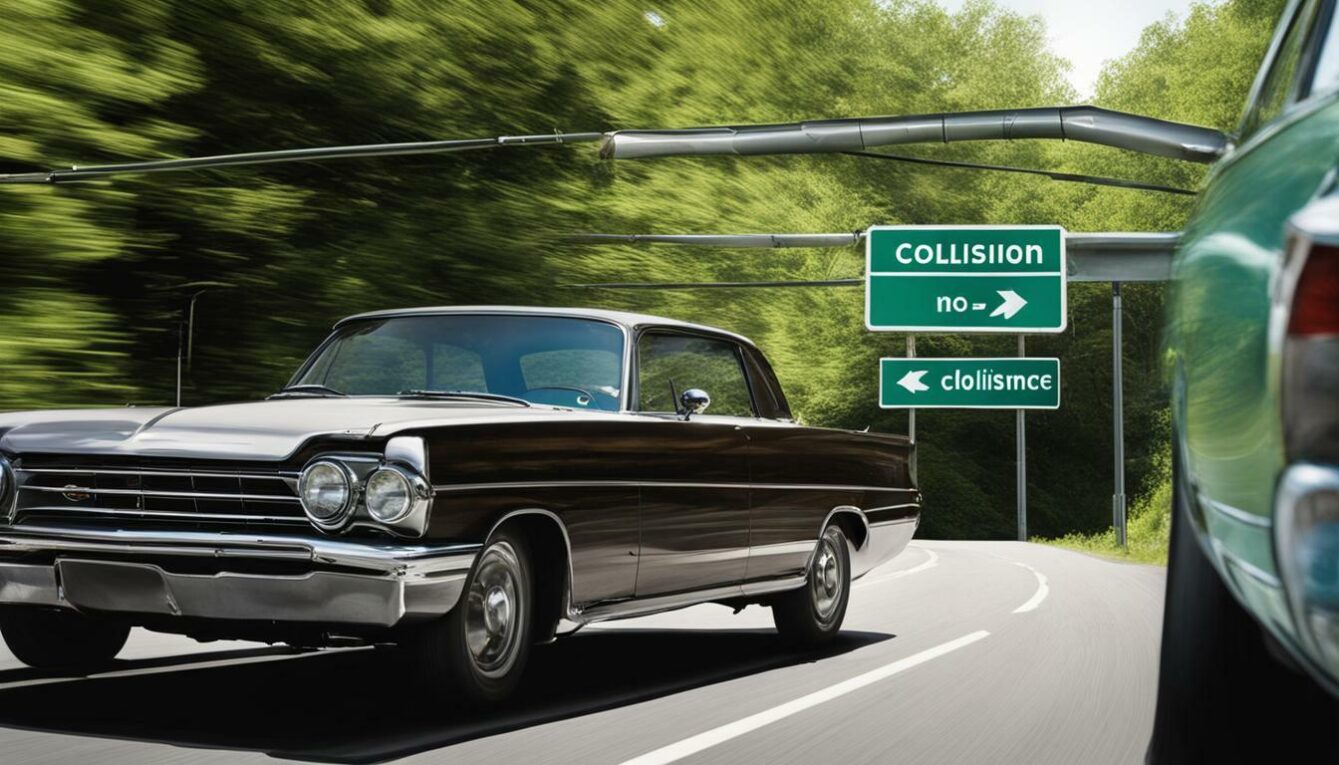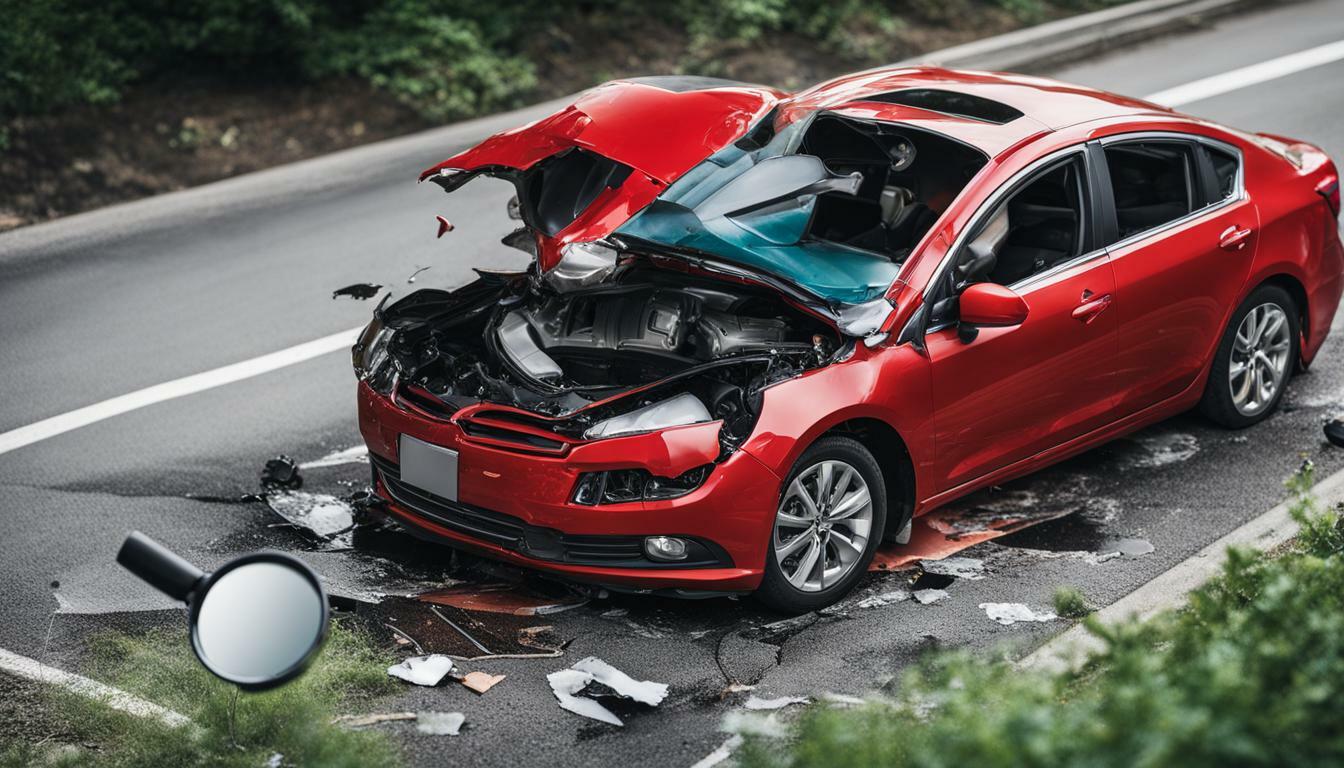Deciding whether to have collision insurance on an old car can be a pivotal decision, as it can maximize benefits and provide financial security in the event of an accident. While collision insurance is not mandatory by states, it is often required for car loans or leases. Understanding the specifics of collision insurance coverage for older cars is essential to make an informed decision.
Key Takeaways:
- Collision insurance covers damage to your car after an accident with an object.
- Comprehensive coverage pays for theft or damage from weather, floods, fire, vandalism, and more.
- The value of the car, not the sticker price, is used to determine insurance payouts.
- Consider the deductible and potential insurance payout before dropping collision or comprehensive coverage.
- Dropping these coverages is generally recommended for older cars with high mileage or significant depreciation, but the decision should also consider the value of the car and its replacement parts.
Understanding Collision Insurance Coverage for Older Cars
Collision insurance coverage for older cars offers valuable protection against damage resulting from accidents with objects, ensuring you’re financially secure when the unexpected happens. This type of coverage can be especially beneficial for those with used cars, providing peace of mind and potentially saving you from expensive repair costs.
When it comes to collision insurance, it’s important to understand what it covers. In the event of an accident or collision, this insurance will help cover the cost of repairing or replacing your vehicle, regardless of who is at fault. It typically covers damage resulting from accidents with other cars, buildings, or objects such as trees or poles.
Comprehensive coverage, on the other hand, extends the protection to include damages from theft, fire, vandalism, weather events like floods or storms, and more. These two types of coverage are often bundled together and can be purchased as part of a comprehensive auto insurance policy.
| Collision Insurance Coverage for Older Cars |
|---|
| – Protection against damage from accidents with objects |
| – Covers repairs or replacement of the vehicle |
| – Can be bundled with comprehensive coverage |
| – Provides financial security in unexpected situations |
It’s important to note that the value of your car, not its sticker price, is used to determine insurance payouts. Therefore, the age, make, model, and condition of your vehicle are taken into consideration. Before considering whether to drop collision or comprehensive coverage for your older car, you should assess the deductible and potential insurance payout. If the car has high mileage, significant depreciation, or its value is low, dropping these coverages may be a sensible financial decision.
However, it’s crucial to evaluate the overall value of your car, including the availability of replacement parts. Classic and vintage car owners should also be aware that their vehicles may require special consideration, as they often have classic car insurance based on the agreed value of the car. Ultimately, before deciding to drop comprehensive and collision coverage, it’s essential to have a plan in place to replace the car if it’s lost.
Conclusion
Making an informed decision about collision insurance on your old car is crucial for maximizing benefits and ensuring financial security, so carefully evaluate your options and consider the value and condition of your vehicle before finalizing your coverage choices.
Collision and comprehensive coverage are valuable insurance types that can maximize benefits for old cars. While not required by states, they are often necessary for car loans or leases. Collision insurance covers damage to your car after an accident with an object, while comprehensive coverage pays for theft or damage from weather, floods, fire, vandalism, and more.
The value of the car, rather than the sticker price, is used to determine insurance payouts. Car owners should consider the deductible and potential insurance payout before dropping collision or comprehensive coverage. It is generally recommended to drop these coverages when the car is older, has high mileage, or has lost a significant portion of its value through depreciation. However, the decision also depends on the value of the car and its replacement parts.
Classic and vintage car owners have special considerations, as they typically have classic car insurance based on the agreed value of the car. Ultimately, it is important to have a plan to replace the car if it is lost before dropping comprehensive and collision coverage.
FAQ
Is collision insurance required by states?
No, collision insurance is not mandatory by states. However, it is often necessary for car loans or leases.
What does collision insurance cover?
Collision insurance covers damage to your car after an accident with an object.
What is comprehensive coverage?
Comprehensive coverage pays for theft or damage from weather, floods, fire, vandalism, and more.
How is the insurance payout determined?
The value of the car, rather than the sticker price, is used to determine insurance payouts.
When should I consider dropping collision or comprehensive coverage?
Collision and comprehensive coverage are generally recommended to be dropped when the car is older, has high mileage, or has lost a significant portion of its value through depreciation.
Are classic and vintage car owners exempt from these considerations?
Classic and vintage car owners have special considerations, as they typically have classic car insurance based on the agreed value of the car.
Should I have a plan to replace my car before dropping comprehensive and collision coverage?
Yes, it is important to have a plan in place to replace the car if it is lost before dropping comprehensive and collision coverage.



